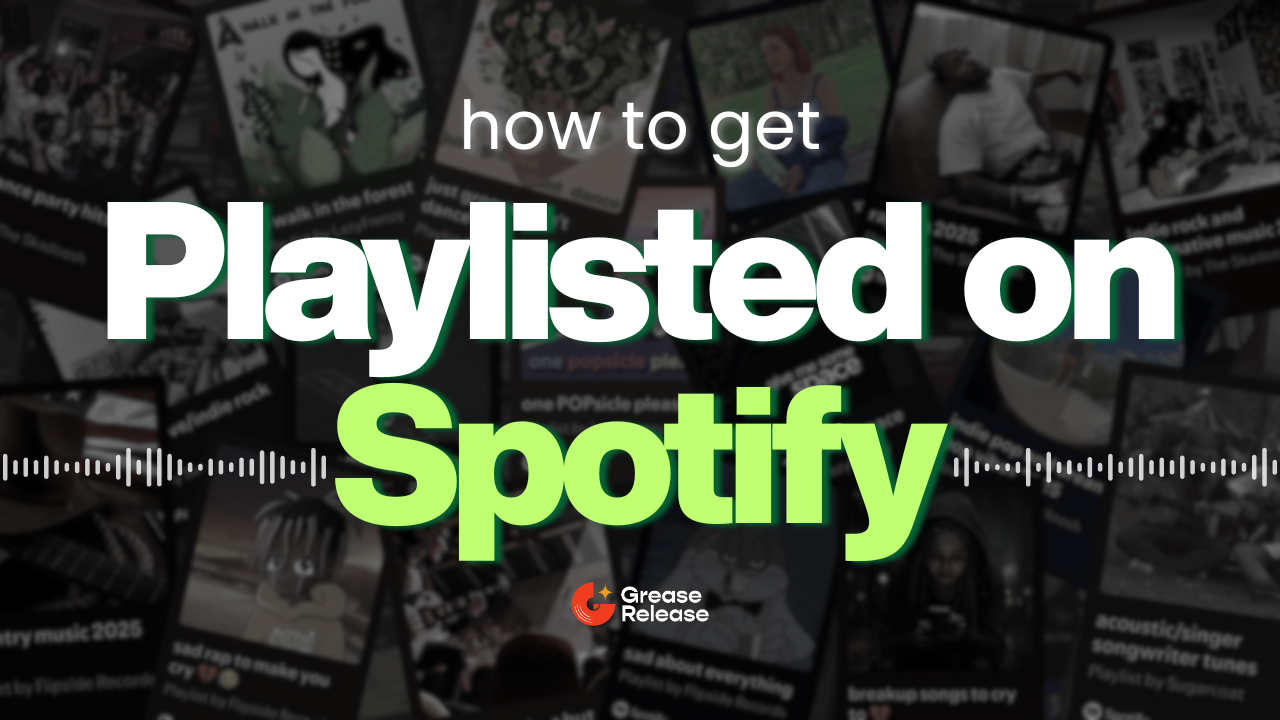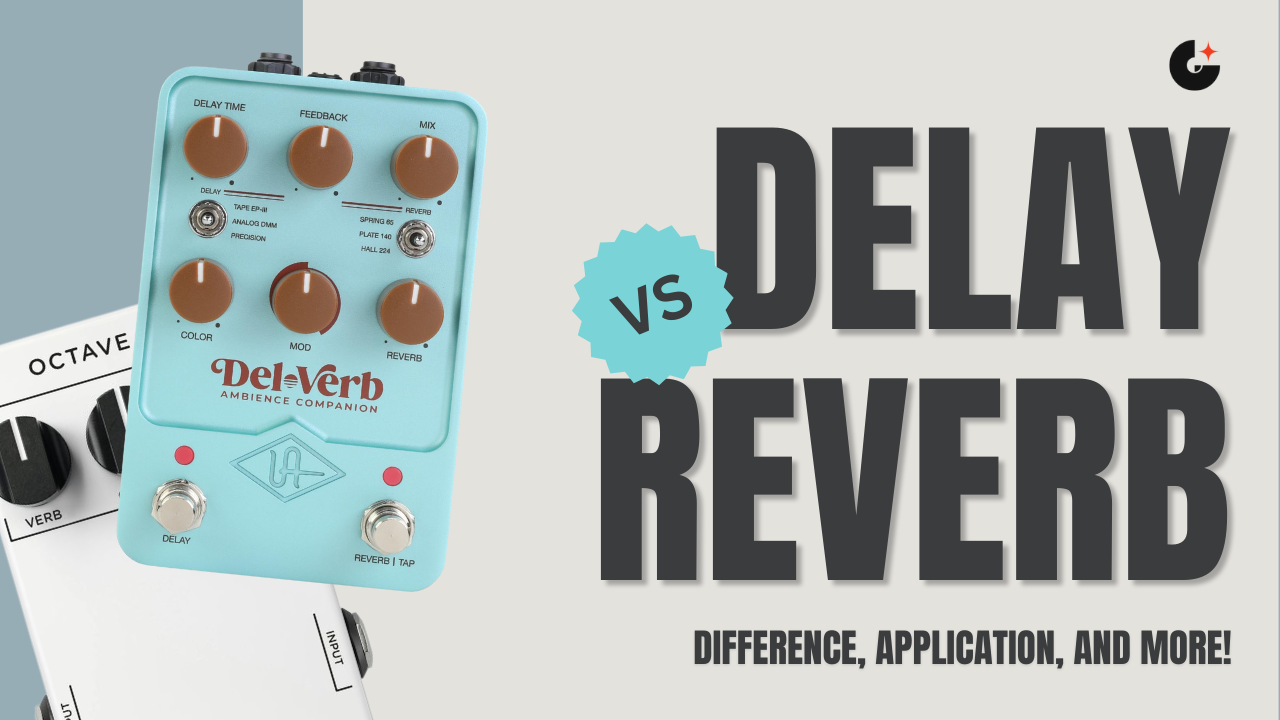
Mental Health and Musicians
Dec 12, 2023Understanding Mental Health Problems and Tips for Music Artists
It is okay to not be okay.
We have heard this, said this, and tried to sing it to the world too. But have we understood this?
A study conducted by a record label found that 73% of the total 1500 independent musicians reported experiencing different symptoms of mental illnesses, among which anxiety and depression were prominent. The alarming results made the label fund projects that aimed at raising awareness and helping treat the mental health issues music makers face.
Mental health issues only worsened during the pandemic. Millions faced grief, and bereavement, and those who could not move on, slipped away into depressive episodes. Many felt isolated and socially deprived, and those who could not come through developed more persisting anxieties. Among those many teachers, students, parents, and doctors, some musicians are no different.
In this blog article, we will be addressing a few things. Note that clinical terms are used (purely for educational purposes), which may be triggering to some, and that this article does not provide authorized/medical help.
Mental health issues musicians face
Everyone’s issues are different. The experience remains unique and we understand that. Here, we have noted down some mental health issues musicians like you may have faced.
Music Performance Anxiety

Anxiety has become more common than we think - and manifests more physically than mentally.
Pssst…come here: We have used ‘anxiety’ as an umbrella term here. Under the Diagnostic Statistical Manual (DSM) - 5, anxiety is categorized into different disorders such as Generalized Anxiety Disorder (GAD), Separation Anxiety Disorder, Panic Disorder, and so on. Performance anxiety is considered a specific anxiety under the category of Social Anxiety by APA - American Psychiatric Association.
When symptoms such as hardening of the chest, breathlessness, dryness of throat, and trembling, occur specifically when you are yet to perform or you have to go up the stage, is termed as music performance anxiety. In layman’s terms, it is often called stage fright. Other symptoms include excessive sweating, increased heartbeat, numbness, and nausea. Sometimes, the anxiety lasts just a few seconds and some musicians shake it off saying that they were mere ‘jitters,’ while some others experience that feeling for a few minutes to hours, which could end up delaying/canceling shows.
Pssst..come here: A lot of times, we fail to recognize the root of the anxiety, which may be the place where you can find a permanent solution (with or without the help of a professional). Some groups and studies have asserted that performance anxiety becomes a result of performance pressure. This pressure may be internal - may come from within the musician, something you may be inflicting upon yourself, or external - from your parents, guides, followers, listeners, colleagues, and so on.
Remember that it is okay to feel those nerves and tremble. What is not okay, is not doing anything to reduce the symptoms or occurrence of it.
Depressive Episodes
Severe and prolonged sadness (more than 2 weeks), is the first symptom of Major Depressive Disorder.
In Major Depressive Disorder, there are only depressive symptoms such as a lack of interest in engaging in different activities (not writing music, no longer finding an interest in making music), constant fatigue (feeling tiresome all the time, finding that making music is a bigger task), extreme loneliness, hopelessness (you don’t feel that you can feel better, you don’t think making music or listening to any will make a difference), insomnia or hypersomnia, and so on. Billie Eilish expressed on experiencing depressive and suicidal thoughts to Gayle King, before the 2020 Grammy Awards.

In Bipolar Disorder, there are depressive episodes as well as manic episodes. The problem here is that you experience both positive and negative emotions in extremes. You may feel euphoric and you’ll want to make music, but the feeling will be so intense that you can’t actually sit down and do anything.
Bebe Rexha opened up on being diagnosed with bipolar disorder, on social media in 2019. She told her fans that she could finally get an explanation for the lows that didn’t let her get outside of her house and the highs that didn’t let her sleep or make music. Mental health for musicians becomes very important to not only feel better and do better but to also understand oneself better in the journey of an artist.
Pssst…come here: You may be experiencing a slump - a block of sorts, which happens to almost every music artist in their journey. However, it is important to recognize when the slump prolongs and you aren’t able to do anything that you were previously interested in and took pleasure in. A slump can very easily become a depressive episode if it is not monitored.
Remember it is okay to feel painfully low, but what is not okay is not to do anything to feel even slightly better.
Insecurity and Fear of Rejection
From Adele to famous K Pop idols, no one is immune to their insecurities and the fear of rejection. The causes for these insecurities could vary:
- Body image issues
- Agism
- The fear of being irrelevant
- Racism
- Financial instability
- Highly self-critical behavior
But among the biggest fears of all, is the fear of never being creative enough. These feelings of not being talented enough or being highly self-critical of your skills, despite evidence of accomplishments proving otherwise often become common symptoms of Imposter Syndrome. Imposter Syndrome is very common in musicians particularly because of the nature of the craft. There is no externally set standard as to what makes up good music since music itself is so subjective - giving musicians so much freedom to literally make any melody and simultaneously be the only judge of it. Naturally, musicians end up being harsh on themselves. This thought process ends up in thinking of oneself as a fraud/imposter. The causes of insecurities could build up to the syndrome as well

Musicians have often cited prolonged periods of creative blocks that made them rethink their music careers completely. So to stay relevant, you will have to make new music consistently and the ability to do that may be easily affected by insecurities, constant fear of rejection, or worse, of failure.
Santigold stressed the inconsiderate music industry when she canceled her North American tour in 2022, releasing a statement that she will not continue to sacrifice herself for an unsustainable industry. She expressed that the touring industry was no longer profitable, and artists were being exploited every day. The expectation to operate at a “superhuman capacity” as Santigold said, could be a root cause of developing lasting insecurities.
While the realities of the music industry could be harsh, understand that due to the wave of mental health awareness amongst the different operating pillars, the industry is on its way to becoming more accommodating now than before. It still has a long way to go, but it is a start nevertheless.
Pssst…come here: You don’t have to be clinically depressed or show clinical symptoms of any mental disorder to be mentally unfit. Mental health issues could be anything that continues to bother you for a prolonged period and doesn’t let you work or make music in peace. Mental health issues could be a lack of a healthy sleep schedule, lack of a healthy diet, deep isolation, or even things you could wave off as ‘small’ such as hyperactively working, stress eating, and so on.
Remember that it is okay to feel void or empty like you’ve run out of ‘talent.’ What is not okay, is to let it consume you, rather than help you find the solution for it.
10 Coping Strategies for Musicians
Journal
By journaling, we don’t just mean writing something every day, maintaining a notebook, and keeping track of your emotions. No. We mean retrospecting. Think of it as an opportunity to sit back and understand whatever you felt throughout the week or the day and why you felt so. Try to backtrack your own emotions, and find out if anything in particular triggered your response. This way, you would have not only understood your emotions but also tried to see how you could give yourself a heads-up in the future because you’d know what stresses you out the most.
Pssst…come here: Sometimes, while journaling, you may also get an inspiration to write a new song! The idea is to give yourself a kickstart to first, acknowledge your emotions instead of denying, and understanding them, giving them words, and who knows, maybe you’d get a great idea for a brand new track.

Channelize
This is taking all the energy and emotions you’d feel, anxiety, low moods, sadness, whatever it may be, and turning them into productiveness, like a person with anger management issues signing up for a boxing class - it will give him a space that allows his anger to be channeled positively.
For you, that space could be a studio where you make or experiment with music. It could be your drawing room or balcony where you write your verses. It could be live shows where you could feel the music move you and give you a chance to let go. Channeling helps you convert something that is potentially bothering you to a positive outcome.
Take the band, Weathers, for example. They made the song, I’m Not Okay which is self-explanatory. If you are feeling intense waves of sadness, try to sit by your instrument and let the sadness take form.
Physical Exercise
Being physically active, dancing exercising, or playing any sports, could make a difference. It helps produce chemicals that change low moods - chemicals that help change the amount of different neurotransmitters such as Serotonin, Dopamine, and others that usually regulate your mood.
Time and again, psychologists and other professionals have asserted the importance of being physically fit to be mentally fit. Yoga, another format for your physical exercise not only helps in regulating your moods but also helps your breathing improve - something particularly important to singers. Pranayama, asanas help you focus your mind on just one activity - breathing and thus help you improve your mindfulness.

Pssst…come here: Our tip is to allow yourself one entire day to do absolutely anything you want - even if it is to do nothing. Doing nothing, as the French say, is an art itself!
Tidy your mess
No, we don’t want to sound like all typical mothers. But they do have a point with maintaining a clean and tidy environment around us. Clean your room, and your studio, and even if your mind says, ‘I like it messy,’ don’t listen to that voice in your head.
Tidying and the process of it can be physically very satisfying. Secondly, tidying provides your mind clarity. Clarity in your thoughts, your emotions, and your perspectives. As elders have said, your mess reflects your mind, so while you clean your mess, you are also, subconsciously, categorizing and organizing your chaotic thoughts.
Familiarise
This could be especially important for those with performance anxiety. You could go and visit the venue as many times as you want to familiarise your mind and body - help mentally prepare for your performance. And as the saying goes, practice makes the man perfect! You could pair this up with deep breathing, relaxation techniques, self-talk, and so on.

Mental health apps
The emergence of online therapy during the pandemic gave rise to different apps that could prove to be useful. Some of them are HearMe (you get to talk to a stranger anonymously and just vent whenever you want; these listeners would have taken training for those sessions as well), Sanvello (helps you plan and keep track of your daily tasks), and so on.
Educate yourself
This doesn’t mean you google your symptoms and diagnose yourself. A lot of musicians, more often than not, generalize their mental health conditions as a part of the process; we are asking you not to do that and to read up on what you think you are experiencing from credible sources. By these credible sources, we mean DSM 5 - a universal manual for any mental health issue you’d be facing, if you’re a believer in numbers, then you could find credible and legitimized research papers published under the National Library of Medicine, Frontiers, and so on. By doing so, you’d help yourself understand your emotions a lot better and you could monitor your behavior.
Pssst…come here: Your experiences are unique yes, but you aren’t alone. So you could always talk to someone you trust or engage with a professional.
Take breathers
Do not fall prey to the hustle culture that has been glorified over the past years on social media. Musicians often feel pressured to also be content creators, with a tight schedule that forces you to make and post content, that is not only new but also somehow original, consistently, throughout all platforms. Everyone seems to want to mark their presence on social media because visual content has only reduced the attention span of the majority of the users. It is a fast-paced virtual competition that you don’t have to sign up for, because, it sounds a bit unrealistic, honestly. You will not fade away into oblivion if you don’t post every Tuesday and Thursday on TikTok. Breathe.

Your musical journey will be different than others and although the industry makes it seem like it is a competitive world, you are only racing against yourself. So take your breaks whenever you need to. Go on a walk, read a novel, and do all of that as a conscious effort to take your mind off a few things. Mental health for musicians is no different than others, so you could try engaging in activities that don’t necessarily involve music.
Accept Criticism
Learn how to recognize blatant criticism, and distinguish that from constructive criticism. Accept constructive criticism and draw your mental boundaries. How do you think Taylor Swift survived in this industry?
Musicians often take criticism very personally and sometimes, it could affect your creative workflow. But try to keep the blows limited to your professional life only, and try to approach it positively - it could help better your music and shape your journey.
Seek Help!
If your emotions and your mental health are slipping out of your hands and if you believe that you cannot manage it by yourself then seek help - unreluctantly. You are human, after all, being a musician doesn’t make you a god who can churn out music unfailingly. Professionals will help you navigate your emotional and mental health which will help you heal as an individual and as a musician.
Our Final Thoughts
At the end of the day, you make music not for everyone else to enjoy it but for you, to enjoy making it in the first place. Be realistic with yourself when you are setting goals, and understand that if there is anyone who can better you in your craft - it is you and for that to happen, you, as a musician, should be mentally fit. In the spreadsheet of priorities you may have made for 2026, add your mental health as well.
We at GreaseRelease, have a bunch of curators on our network who are looking for new & exciting music to push on their massive playlists. If you make music and want to reach a wider audience, check out our submission platform and get a chance to reach millions of listeners! Submit your tracks now!
Don't miss my newsletter!
Join me on a music entrepreneurship journey with new tips and tricks delivered straight to your inbox.
We hate SPAM. We will never sell your information, for any reason.




